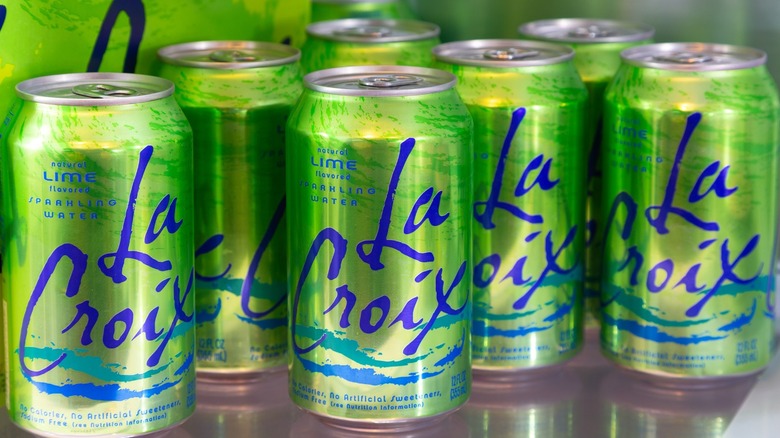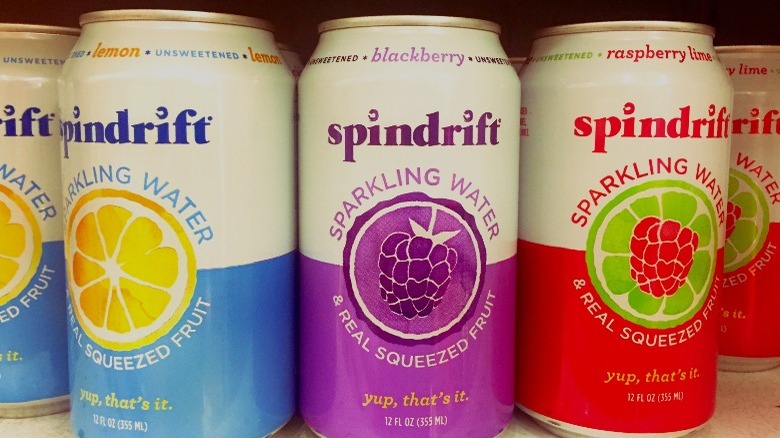Is Flavored Water Bad For You?
Experts across the health spectrum agree that drinking water is an important part of staying healthy. After all, water makes up between 50 and 70% of your body's chemistry and you depend on water to survive (via Mayo Clinic). Every part of your body, from large organs down to the smallest cells, depends on water for a variety of functions, such as eliminating waste, lubricating joints, managing your body temperature, protecting tissues, among other important processes.
While advice varies on how much water you should drink each day, the experts at the Mayo Clinic note that eight glasses a day is, in general, a reasonable goal to stay hydrated and maintain energy. They point out, however, that you may need to increase this recommended amount based on certain circumstances, such as following an intense workout, if you are in a hot and humid environment, or if you lose fluids due to fever, vomiting, or other illness.
Suppose you need to up your water intake on a regular basis, though, but you can't find the will to drink eight glasses of plain water because you want more pizzazz in your beverages. Is drinking flavored water a healthy alternative?
Watch out for artificial sweeteners
The flavored water ecosystem encompasses a wide range of options. These include seltzer (i.e., carbonated) or flat water that can contain natural fruit infusions, sugar or artificial sweeteners, added vitamins and minerals, added caffeine, and the list goes on. Given the wide variety, it's no wonder that Statista reports that flavored water consumption has been on the rise over the past decade as a substitute for more sugary drinks. Americans, on average, are estimated to consume 12 liters of flavored water per capita this year.
Flavored water can be either naturally or synthetically flavored. If the flavoring is made in a lab rather than sourced from nature, however, this should not concern you. "Synthetic doesn't always mean 'bad,' and terms like this should not scare people," registered dietitian Lauren Manaker, MS, RDN, LD tells Verywell Fit. "Naturally flavored waters will contain ingredients like fruit extract, while synthetically flavored waters may contain a human-made ingredient like a fruit extract that helps the water taste a certain way," she explains.
In regard to flavored waters that contain artificial sweeteners, such as aspartame, or natural sweeteners, such as stevia, regulators consider these safe. However, research suggests that there could be adverse long-term effects to these types of added sweeteners that could lead to type 2 diabetes, obesity, and cardiovascular disease. So, if your taste buds are adaptable, best to opt for flavored water that is infused with natural fruit and vegetables or natural extracts, rather than added sweeteners (via Verywell Fit).
Whatever your flavored water preference, the key is to stay hydrated to maintain optimal health. Go ahead and enjoy your favorite bottle of flavored H₂O knowing that you are doing your body good.


